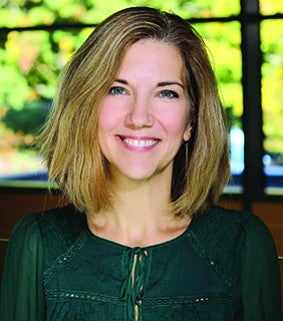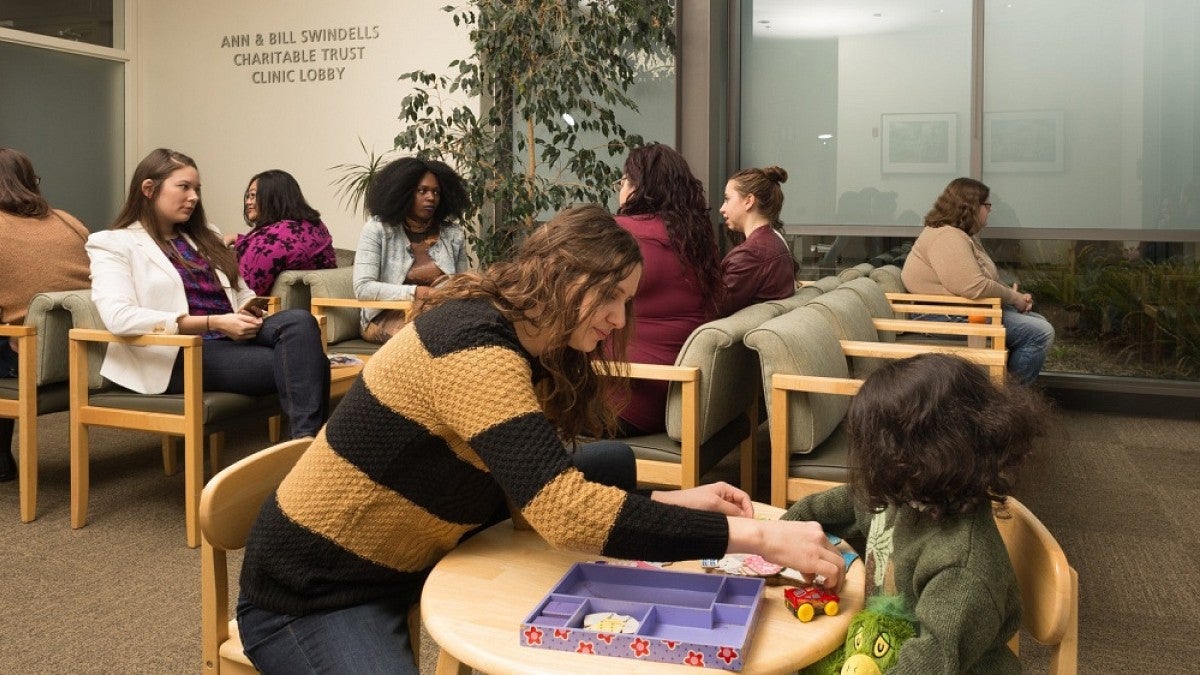As the new director of the UO’s HEDCO Clinic, Wendy Hadley will bring to bear years of research experience, hospital work and a passion for helping children and families.
“I’ve always felt a strong connection with kids,” says Hadley, who joined the College of Education faculty this fall. “I understand them. Teenagers too. A lot of people shy away from teenagers, but I find them to be fascinating beings who have a perspective on life that sometimes gets a little tainted as we get older.”

“We’re excited to welcome Wendy to the UO and very grateful to the Thomsons,” says Randy Kamphaus, dean of the college. “Endowed chairs enable us to recruit and retain top talent, and Wendy exemplifies the caliber of leadership and scholarship that we wanted to bring here.”
With Hadley at the helm, the HEDCO Clinic is poised for transformation. She’s dedicated years of research to improving lives. And she knows, from firsthand experience as well as empirical data, how correcting course early can make a lifetime of difference.
Ultimately, she hopes her efforts will help more children overcome challenges early, while they are easier and more effective to address — a philosophy she began adopting shortly after earning her bachelor’s degree in psychology.
Working at the Children’s Hospital of Philadelphia, Hadley helped children who had difficulty eating or were tube-fed. Getting kids to eat well, they discovered, affected other developmental milestones, such as walking. For her dissertation, Hadley worked with children who were HIV-infected, either prenatally or through risk behaviors.
“Kids take risks,” she says. “That’s part of being an adolescent. But some risk behaviors can affect the trajectory of your entire life — and the length of your life. So it made me wonder how we can help them correct course early on. It was the same thing with substance use.”
As director, Hadley will lead the clinic’s efforts to provide accessible services to the Eugene-Springfield community through the work of five centers: the Center for Healthy Relationships, the Speech-Language-Hearing Center, the Center for Teaching and Learning, the Autism Assessment and Applied Behavior Analysis Clinic, and the Comprehensive Diagnostic Evaluation Clinic.
Before coming to the UO from Providence, Rhode Island, Hadley was training director of the pediatric practicum program in pediatric psychology at Hasbro Children’s Hospital and an associate professor of psychiatry and human behavior at Warren Alpert Medical School of Brown University.
Hadley is charged with fully integrating HEDCO’s different centers to provide excellent care. Ultimately, she says, the whole clinic will exceed the sum of its parts, serving as a modern multidisciplinary teaching clinic for social and behavioral services, something rarely found outside of a medical school.
“I’m a pediatric psychologist by training,” Hadley says. “I’ve worked in many established integrated care organizations. But it’s exciting to start at the beginning. The HEDCO Clinic has all of these amazing programs that have incredible possibility and opportunities to integrate.”
Her plans also include increasing services for children with autism, building community awareness by reaching out to more families and using virtual reality as an intervention tool, technology that Hadley has researched to help teens avoid risky behavior.
The impact of the HEDCO Clinic goes well beyond the families that directly benefit, Hadley emphasizes. The practitioners who are trained there go on to help countless children and families and train others.
The college’s stellar national reputation, the UO’s culture of collaboration and the flexibility and creativity that come with an endowed position all inspired her to move to Oregon.
“It’s exciting,” Hadley says. “So many nationally-recognized programs — all in the name of helping children and families — were born here. At the UO, the faculty figured out implementation and dissemination very early on. And everyone is so helpful. There’s a lot of work to do and people are very busy. But if you ask for something or if you’re trying to figure something out, they will take time for you. These sound like simple things. However, to a new person, they matter a lot.”
—By Ed Dorsch, University Communications


